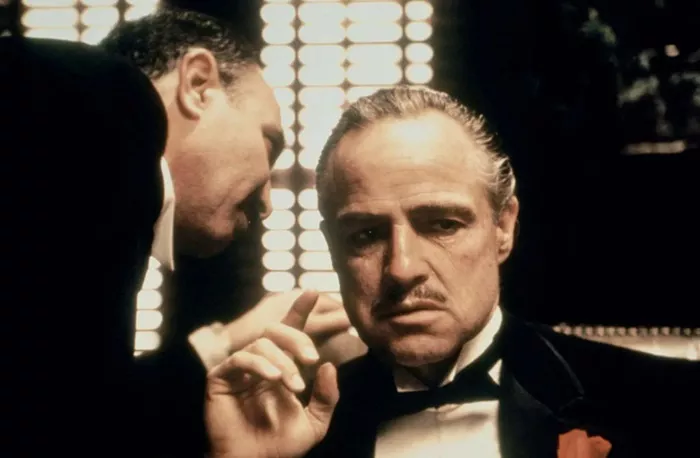In the illustrious history of the Academy Awards, only a select few films have managed to secure the coveted achievement of winning five Oscars. These movies, each a masterpiece in its own right, have left an indelible mark on the world of cinema. In this article, we delve into the cinematic archives to explore the stories behind the three exceptional films that clinched this prestigious honor.
The Godfather: A Cinematic Epic That Stole Five Oscars
Released in 1972 and directed by the legendary Francis Ford Coppola, “The Godfather” stands as an unparalleled masterpiece in the annals of cinema. The film, adapted from Mario Puzo’s novel, boasts a stellar cast featuring Marlon Brando, Al Pacino, and James Caan. The sweeping saga of the Corleone crime family not only captivated audiences but also garnered critical acclaim, earning it the distinction of being one of the three movies that won 5 Oscars.
The first Oscar triumph for “The Godfather” was in the category of Best Actor, where Marlon Brando’s iconic portrayal of Vito Corleone left an indelible mark on the history of cinema. Brando’s gripping performance, marked by his method acting prowess, set a standard that continues to influence actors to this day. The Academy also recognized the film’s exceptional screenplay, awarding it the Oscar for Best Adapted Screenplay.
In addition to these accolades, “The Godfather” secured Oscars for Best Picture, Best Director, and Best Costume Design. The meticulous attention to detail, combined with Coppola’s masterful storytelling, elevated the film to cinematic greatness. It remains a timeless classic, and its inclusion in the exclusive list of three movies that won 5 Oscars is a testament to its enduring impact.
Schindler’s List: Steven Spielberg’s Poignant Masterpiece
When it comes to powerful storytelling and cinematic brilliance, few directors can match the prowess of Steven Spielberg. In 1993, Spielberg unleashed “Schindler’s List” upon the world, a film that not only left audiences spellbound but also etched its name in the history books as one of the three movies that won 5 Oscars.
The haunting tale of Oskar Schindler, a German businessman who saved the lives of over a thousand Polish Jews during the Holocaust, resonated deeply with audiences and critics alike. The film’s impact was felt across the globe, and its recognition by the Academy was a fitting tribute to its emotional depth and historical significance.
Liam Neeson’s portrayal of Oskar Schindler earned him the Best Actor Oscar, adding to the film’s first win in the category of Best Cinematography. The stark black-and-white visuals captured by cinematographer Janusz Kamiński conveyed the gravity of the narrative, creating an immersive experience for the audience. “Schindler’s List” also clinched the Oscars for Best Director, Best Adapted Screenplay, and the coveted Best Picture.
Spielberg’s ability to navigate the delicate balance between historical accuracy and poignant storytelling is evident throughout “Schindler’s List.” The film’s inclusion in the trio of movies that won 5 Oscars is a testament to its lasting impact on both cinema and the collective human conscience.
See Also: Why is “Forrest Gump” so Good?
The Shape of Water: Guillermo del Toro’s Cinematic Triumph
In 2017, Mexican director Guillermo del Toro mesmerized audiences with his enchanting and unconventional love story, “The Shape of Water.” This film, set against the backdrop of the Cold War era, not only captured hearts but also secured its place among the three movies that won 5 Oscars.
Del Toro’s visionary storytelling, coupled with the mesmerizing performances of Sally Hawkins and Doug Jones, propelled “The Shape of Water” into the cinematic stratosphere. The film’s unique blend of fantasy, romance, and social commentary resonated with both audiences and critics, earning it widespread acclaim.
The first Oscar for “The Shape of Water” came in the form of Best Production Design, recognizing the film’s meticulous attention to detail in crafting its otherworldly setting. The enchanting score by Alexandre Desplat also received recognition with the Oscar for Best Original Score. However, it was the film’s groundbreaking director, Guillermo del Toro, who clinched the coveted Best Director Oscar.
Sally Hawkins, with her stirring portrayal of Elisa Esposito, a mute janitor who forms a unique bond with an amphibious creature, earned the film its fourth Oscar in the category of Best Actress. Finally, “The Shape of Water” triumphed in the Best Picture category, cementing its status as one of the three movies that won 5 Oscars. Del Toro’s ability to weave a narrative that transcends genres and his commitment to pushing the boundaries of storytelling are evident in every frame of this cinematic triumph.
Conclusion: A Cinematic Pantheon of Excellence
In the illustrious history of the Academy Awards, only three movies have attained the distinction of winning 5 Oscars – “The Godfather,” “Schindler’s List,” and “The Shape of Water.” These cinematic masterpieces, each unique in its storytelling and thematic exploration, have left an indelible mark on the world of cinema.
“The Godfather,” with its gripping portrayal of the Corleone crime family, stands as a testament to Francis Ford Coppola’s directorial brilliance and Marlon Brando’s unforgettable performance. Steven Spielberg’s “Schindler’s List,” a poignant depiction of one man’s efforts to save lives during the Holocaust, showcases the director’s ability to marry historical accuracy with compelling storytelling. Guillermo del Toro’s “The Shape of Water,” an enchanting love story set against a backdrop of Cold War intrigue, exemplifies the director’s visionary approach to filmmaking.
As we reflect on these cinematic achievements, it becomes evident that the movies that won 5 Oscars are not just recipients of awards but timeless works of art that have stood the test of time. Each film, in its own way, has contributed to the rich tapestry of cinematic history, earning a place in the pantheon of excellence. The question “Which 3 movies won 5 Oscars?” is more than a mere inquiry – it is an invitation to explore the magic and mastery of these exceptional films.























